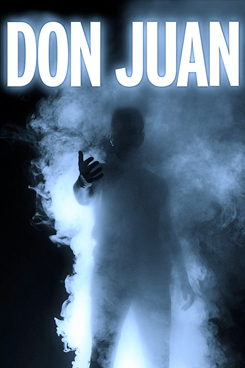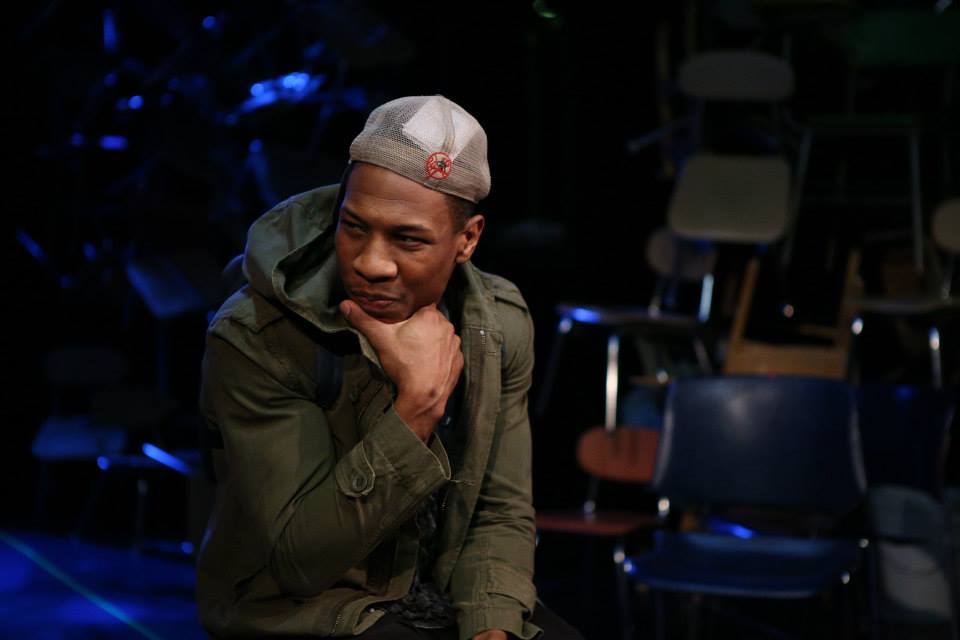The third and final Yale School of Drama thesis show opens this week. Andrej Visky, a third-year director from Romania, directs Molière’s Don Juan, a prose tragi-comedy that tells the famous story of Don Juan, or Don Giovanni, a free-thinking libertine who believes that the pleasures of life—particularly women—are meant to be enjoyed, a view that leads ultimately to his downfall. Molière incorporates commedia dell’arte aspects into the play, so that there is a decidedly comic cast to the tale, and that is one of the qualities that attracted Visky to the project. “The play is a great intersection of tragedy and comedy,” he says, allowing him to “approach weighty thought through laughter.” Molière, as Visky sees it, is interested in an overview of society to create a comedy of manners that includes beggars and the high-born, and, as he says, “the supernatural makes an appearance” as well. When I pointed out that both Don Juan and the first thesis show this year, The Master and Margarita, feature the threat of damnation, Visky pointed out that his Don Juan “ends ambiguously,” leaving the audience to decide if Don Juan’s fate is “damnation or liberation.”
 An atheist in a Catholic culture, Don Juan flaunts the moral edicts of his day—a factor that could make him seem, in a Romantic reading, akin to the kind of artist who lives only to express himself, or, as Visky sees him, a possible revolutionary figure, “a seeker of meaning.” The Don’s sidekick, the servant Sganarelle, is on hand to offer asides on his master’s self-serving proclivities; while attracted to his master’s lifestyle, Sganarelle also represents a deflationary, common-sense outlook. And there is, for Visky, an aspect of the play that is entirely relevant to our day and age: namely, the “cost of freedom.” Are we free to do as we please or do we have obligations to others, and to the future?
An atheist in a Catholic culture, Don Juan flaunts the moral edicts of his day—a factor that could make him seem, in a Romantic reading, akin to the kind of artist who lives only to express himself, or, as Visky sees him, a possible revolutionary figure, “a seeker of meaning.” The Don’s sidekick, the servant Sganarelle, is on hand to offer asides on his master’s self-serving proclivities; while attracted to his master’s lifestyle, Sganarelle also represents a deflationary, common-sense outlook. And there is, for Visky, an aspect of the play that is entirely relevant to our day and age: namely, the “cost of freedom.” Are we free to do as we please or do we have obligations to others, and to the future?
With a cast of eight players, Don Juan, like the other thesis shows this year, will feature many of the fine young actors in the Yale program, including Ariana Venturi, James Cusati-Moyer, and Aaron Profumo, all featured in Master and Margarita, and Bradley Tejeda, who appeared in the Yale Repertory's production of Arcadia last fall. Visky, who trained and worked as an actor himself in his homeland, feels that he “understands the actor’s process, the means, and what it takes” to create a character. For him, theater is a means “to touch the soul” and to break through the everyday numbness of life, but, at the same time, he recognizes that, in “the age of television,” compared to Molière’s day, it is much harder to keep the audience’s attention. “There are so many demands on our time.”
Don Juan is the only thesis show this year to use the full proscenium stage at the University Theater. Visky feels his show’s “operatic dimension” requires it. Central to his staging is “a huge box” that will support the play’s many transitions and scenic changes. Act II, for instance, recalls a “broken-down boardwalk culture” as one might find it on a seedy Jersey shore. Indeed, Visky knew from the start that he wanted his thesis project to be an adaptation. Working with third-year dramaturg Samantha Lazar and a new translation by Yale School of Drama second-year playwright Brendan Pelsue, Visky has aimed to bring Don Juan into our day, with “comedy surprises” that connect very much to our world.
Visky feels drawn to “comedy with a serious spin.” “I don’t believe in a theater that’s comfortable,” he says and likens the process of creating theater to giving birth—as opposed to, for instance, a factory. What comes out is intimately connected to all who take part, we might say, and for Visky the purpose is a “fight for ideas that will be important to others and that get people interested.” Part and parcel of that purpose is the notion that even a classic—as Romanian theater understood in the Stalinist period—can carry a social or political meaning relevant to a much later period. Born three years before the Romanian Revolution and the ousting of Ceauşescu in 1989, Visky still can draw on a cultural memory of theater that incorporated coded messages in classic works of earlier times and places. That tendency should serve him in good stead in creating, with his collaborators and cast, a “fresh feel for the sexual politics” of this tale of the most famous womanizer in literature, his name synonymous with anything from a playboy to a lecher to a kind of Faustian lover of the flesh, in defiance of spiritual or ethical concerns.
“We are all Don Juans,” Visky says, encouraged by consumer society to seek out new sensations, new products, as though our lives’ meaning depends on it. Perhaps live theater, in the era of screens and simulacra, might be a way of finding new meaning in old affinities.
Don Juan By Molière Translated by Brendan Pelsue Adapted by Andrej Visky, Brendan Pelsue, and Samantha Lazar Directed by Andrej Visky
Scenic Design: Alexander Woodward; Costume Design: Sydney Gallas; Lighting Design: Andrew F. Griffin; Sound Design: Jing Yin; Projection Design: Yana Birÿkova; Dramaturgy: Samantha Lazar; Stage Management: Avery Trunko
Yale School of Drama University Theater January 27-31, 2015




